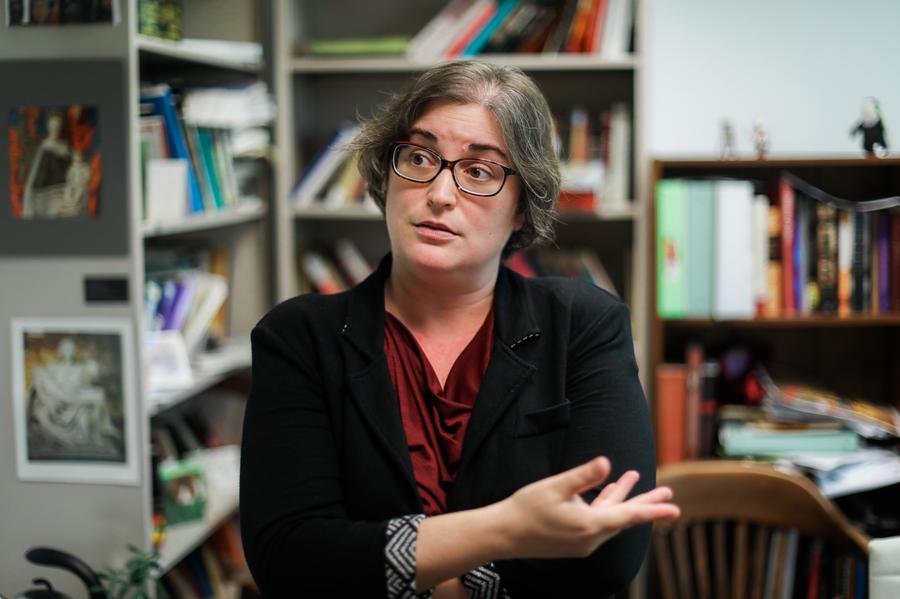
Associate religious studies professor Rabia Gregory recently received a $30,000 grant from the Wabash Center for Teaching and Learning in Theology and Religion to develop a program geared toward improving the way religious diversity is taught not only at MU but also across the state of Missouri.
The two-year program will aim to spark meaningful dialogue between professors, students and other members of the community about topics such as race, religion and discrimination during its first year.
“As with so many things related to money, in a way this grant gives us not only the resources to do important work but also gives us the ability to take the time to do [it],” Gregory said.
The first events to be held this semester will be free listening sessions open to the public. These will involve Gregory and potentially other professors mediating discussions between participants.
“Frankly, my biggest goal is having meaningful conversations, not just faculty lecturing, but dialog between different members of our community,” Gregory said.
The debut session will be Oct. 10 at 6:30 p.m. at the Fireplace Lounge in Hulston Hall and will focus on race and religion. Gregory said a great deal of misinformation about the two, especially in regard to Islam, has affected how people view global and national news recently.
“Religion certainly isn’t the only part of that, but it’s a big part of it,” Gregory said. “Religious perspectives often shape the ways that individuals become political activists, the ways that people think about their obligations as a citizen.”
The grant will also fund the creation of a survey covering issues of religion, which will be distributed throughout MU and Columbia and possibly other schools that teach religion.
The Campus Climate Survey results released this past month showed that 6,766 survey participants identified as having one or multiple religious/spiritual identities out of 9,750 respondents total.
“One thing that I hope we’re going to be able to do with this project is to get a real sense of what the religious diversity on this campus is, where people are, where they came from and what their faith perspectives are,” Gregory said.
Gregory has been with the religious studies department at MU for 10 years and has received other grants to further personal research as well as to develop her own teaching methods.
This particular grant will allow the entire department to get involved through not only the listening sessions but also teaching retreats and various other events, particularly during the program’s second year. Gregory will also travel across the state to learn more about Missouri’s religious diversity.
“I think one of the most important things that we can do as scholars who work on religion at a public university is think about how our knowledge can help change the ways that citizens understand their own religions and the religions of others in relation to world events,” Gregory said.
Graduate student Alexandra Goans is working toward her master’s degree in religious studies and has been hired as the primary researcher to assist in the creation of the survey as well as to catalog the responses from the listening sessions.
Goans was a senior finishing her undergraduate degree in 2015 when protests occurred on MU’s campus.
“It seemed like a lot of people didn’t understand what it was like to be a minority on campus and I think that that really translates to the university system as a whole,” Goans said.
Goans believes the work of this program could change that.
“The long-term goal is to develop a systematic strategy for teaching,” Goans said. “If we can accomplish this, the university climate, and hopefully the climate of other universities across the state and the country, can have a more inclusive, more diverse, more accepting university body.”
_Edited by Olivia Garrett | [email protected]_